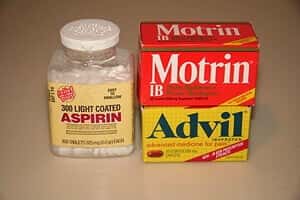
Regular use of aspirin and nonsteroidal anti-inflammatory drugs (NSAIDs) can protect against colorectal cancer, but not everyone benefits from this effect.
Why Not Take Aspirin for Cancer Prevention?
Researchers have known for many years that aspirin and NSAIDs like ibuprofen, naproxen and diclofenac appear to have anti-cancer properties. But doctors have been reluctant to recommend such drugs because some people are susceptible to life-threatening bleeding ulcers.
In this study, investigators looked at the genetic makeup of people who had developed colon cancer or cancer of the rectum and compared their genomes to those of people without cancer.
Undesirable Results
People with one of two specific genotypes, about 9 percent of the total, got no protection from taking an NSAID. A small proportion of people, about 4 percent, were at higher risk of colon cancer if they took one of these drugs.
The risky genotypes are now known and it should be possible for doctors to advise their patients whether it will be helpful or harmful to take aspirin or an NSAID for colorectal cancer prevention.
Genetic Testing Still Elusive
The genetic tests are not yet available for clinical use, however, so it will be some time before this research will make a difference for ordinary people. People who are aware of a family history of colon cancer should periodically ask their doctors to help them get access to this testing so they will know whether or not aspirin, ibuprofen or another NSAID would provide a measure of risk reduction.

